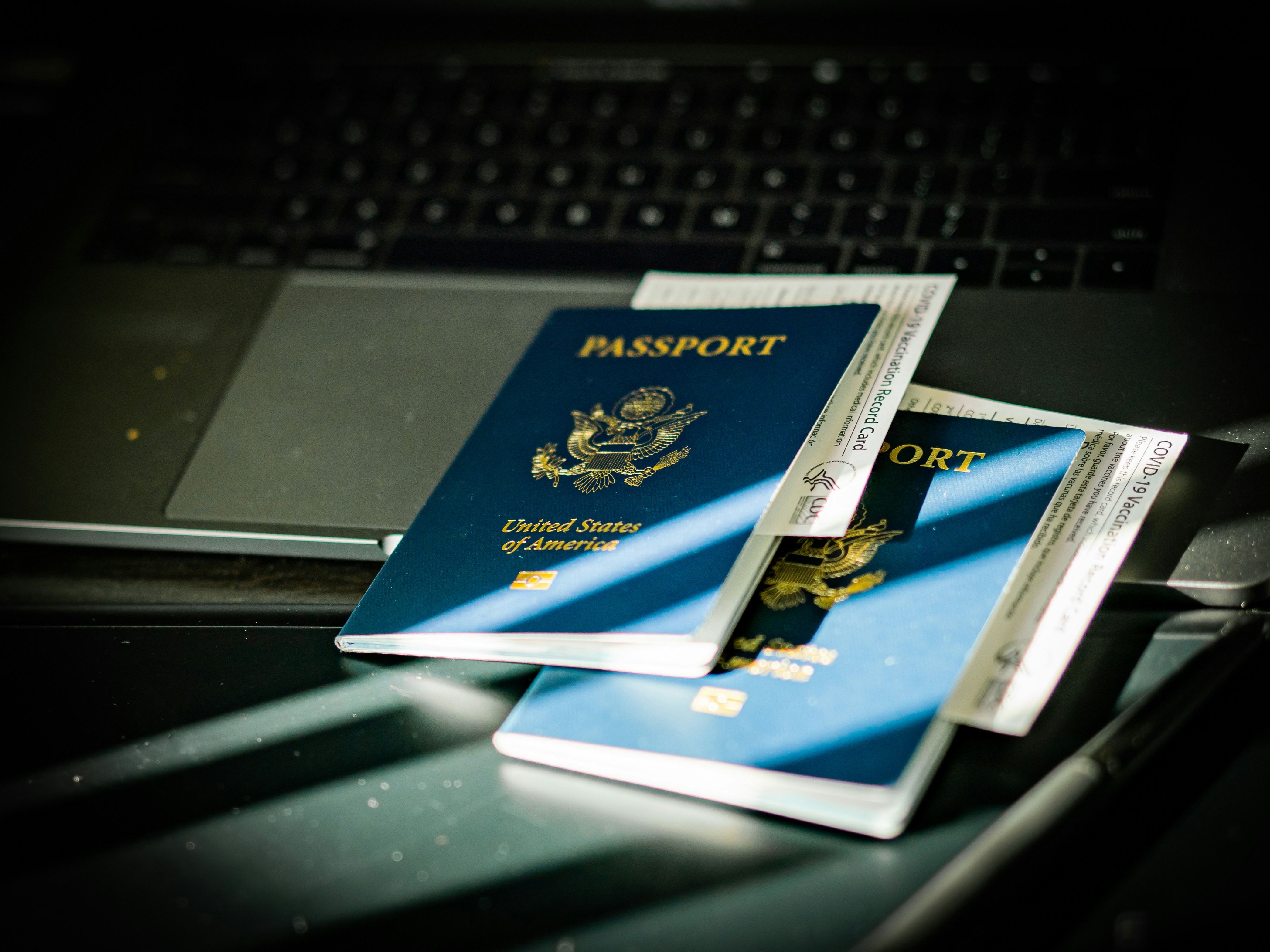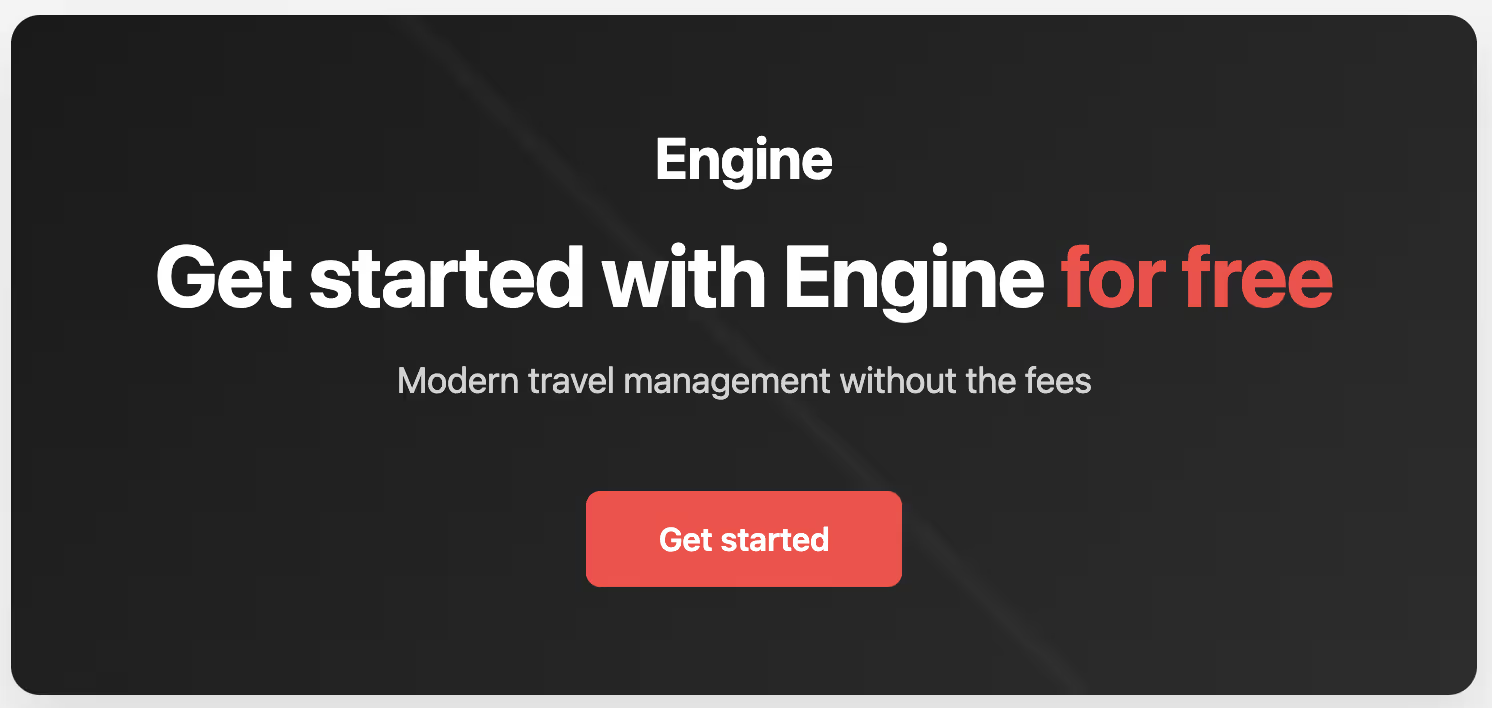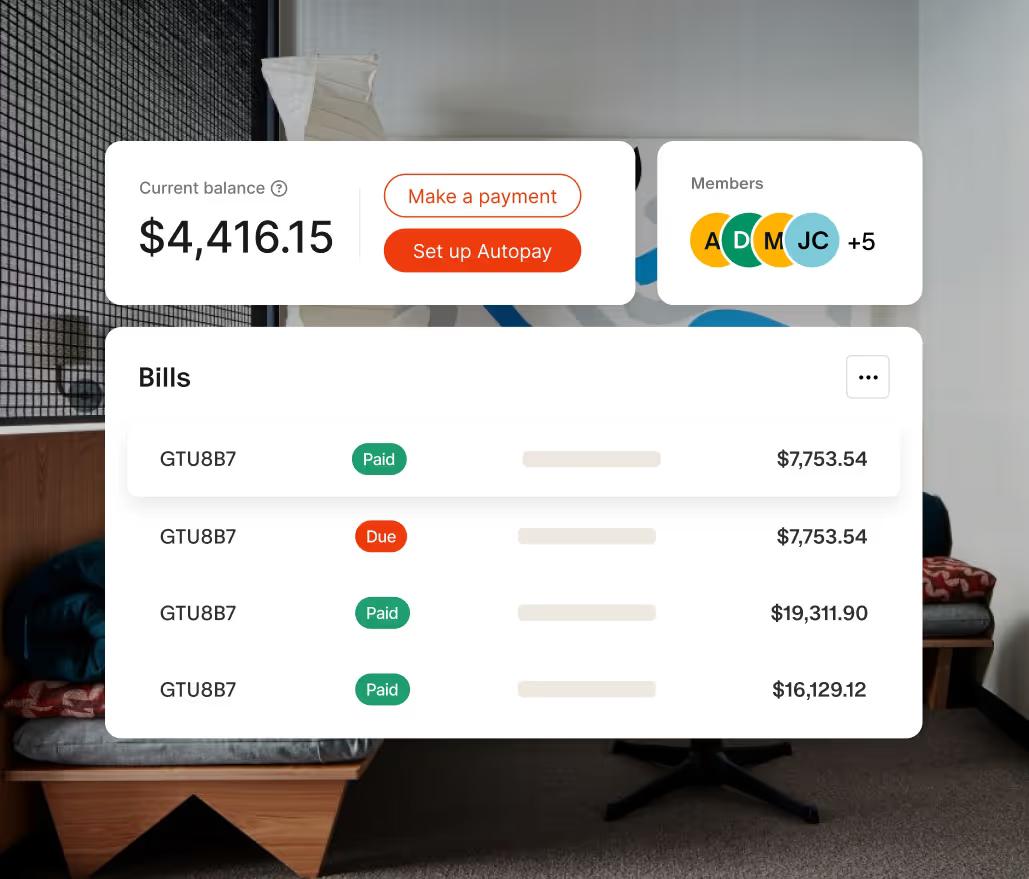Stop Losing Money on Business Travel Compliance: A Practical Guide

Last month, a construction project manager spent three days hunting receipts from a crew deployment instead of managing the build. The missing documentation delayed month-end close, triggered an expense audit, and left the project 12% over budget with no clear explanation for the client.
Meanwhile, their installation crew got stranded at a remote job site with no emergency contact protocol when severe weather hit.
Business travel compliance isn't boring rule-following. It's your best defense against financial disasters and operational chaos. When done right, compliance protects your projects while your crews focus on work instead of paperwork nightmares.
This guide shows you how to build compliance systems that protect your bottom line without creating bureaucratic headaches.
How to Eliminate Project-Killing Compliance Risks
Manual compliance processes drain profits while your project managers hunt receipts instead of managing the job.
Stop Expense Policy Violations Before They Cost You Money
Your crew just booked $300-per-night hotels when your policy caps rooms at $150. Meanwhile, three project managers submitted meal receipts without itemization, and your finance team can't tell which expenses are reimbursable.
Policy violations don't just waste money. They create audit nightmares and kill project budgets.
Common expense policy failures:
- Room rates that exceed company limits
- Missing receipts and documentation
- Unapproved travel bookings
- Personal expenses mixed with business costs
The biggest mistake companies make is creating policies that don't match how crews work. Your concrete team can't submit receipts in real-time while pouring foundations, and your installation crews won't hunt down itemized receipts at remote job sites.
Your crews need to understand IRS per diem limits, documentation requirements, and how meal expenses get categorized for tax purposes.
Set clear policies that your project managers can follow without calling accounting every time.
If your standard daily meal allowance is $65, but the job site is in downtown San Francisco where lunch costs $20, your policy needs to reflect reality. Otherwise, your crews will either go hungry or ignore the policy completely.
Create expense categories that match your work:
- Project travel (job site work)
- Training travel (skills development)
- Business development (client meetings)
- Emergency travel (equipment failures)
When auditors review your books, you'll have documentation that shows business purpose and proper allocation.
Engine's custom fields ensure every hotel booking hits the right project and expense category from day one—no manual sorting, no missing receipts.
Keep Your People Moving With Proper Immigration & Visa Management
Immigration violations can shut down projects and strand crews.
When your telecommunications team needs to service equipment across the Canadian border, or your energy crew travels to Mexico for a pipeline project, immigration compliance becomes mission-critical.
Different types of business travel require different documentation. A two-day training session needs different paperwork than a six-month installation project.
Your crews need to know the difference between business visitor status and work permits, and when each applies.
Work with your legal team to build checklists that your project managers can follow. While Engine doesn't provide immigration compliance tools, proper documentation planning protects your projects.
If your crew is installing equipment for more than 90 days in Mexico, they need work permits. If they're just training local technicians for three days, business visitor status works.
Work with HR and legal teams to track these dates:
- Visa expiration dates
- Work permit renewals
- Passport expiration (6+ months validity required)
- Country-specific entry requirements
Engine's custom fields can help you tag travel bookings with project codes and crew information, but immigration compliance requires coordination with your legal and HR teams.
Avoid Lawsuits With Proper Duty of Care
Duty of care is a legal requirement that extends beyond the work site to accommodations, transportation, and emergency support.
Your concrete crew gets stranded in a storm with no emergency protocol, no way to reach help, and no clear evacuation plan. The lawsuit that follows will cost money and destroy your reputation with every future client who Googles your company name.
Different destinations require different levels of protection. Sending your crew to install equipment in downtown Chicago requires basic duty of care protocols.
Sending them to a remote oil platform in West Texas requires emergency planning, medical evacuation insurance, and 24/7 communication protocols.
Create location-based safety protocols that work:
- Emergency contact procedures your crews will use
- Nearest medical facilities with addresses and phone numbers
- Evacuation procedures for each job site
- Communication schedules that match work patterns
Your concrete crew won't check email while pouring foundations, but they'll respond to text messages.
Build emergency communication systems around how your people work, not how your IT department wants them to work.
Engine provides booking management and 24/7 support, but comprehensive duty of care requires coordination with your safety, legal, and HR teams to address location-specific risks and emergency procedures. You need communication protocols that match how your crews actually work. Your concrete crew won't check email while pouring foundations, so establish direct contact methods that reach them when needed.
Eliminate Documentation and Approval Nightmares
Your project manager just burned three hours hunting receipts from the Phoenix job instead of managing the build. Meanwhile, finance is calling about missing documentation, and the client wants to know why project costs are 15% over budget.
Poor documentation and approval workflows don't just create headaches—they kill project profitability.
Common documentation failures:
- Missing or incomplete expense receipts
- Travel bookings without proper approval
- Expenses submitted weeks after travel
- No clear audit trail for policy exceptions
Manual approval processes create bottlenecks that delay projects. Your crew needs hotel rooms tonight, but the approval is stuck in someone's inbox until Monday morning.
When your project manager books accommodations through Engine for the installation crew, the system applies the correct GL codes, enforces spending policies, and triggers any required approvals you've configured.
Real-time policy enforcement prevents violations:
- Policy limits enforced at booking time
- Required approvals triggered without manual work
- Spending alerts sent to project managers
- Exception reporting for finance teams
If your policy requires pre-approval for accommodations over $200 per night, the system should require that approval before confirming the booking, with clear explanations of why the policy exists.
Documentation creates audit trails without extra work. Every booking decision, policy exception, and approval should generate documentation that satisfies auditors without anyone having to create reports manually.
Build Executive-Level Compliance Strategy
Stop losing money on business travel compliance headaches and start making compliance work for you.
When you get compliance right, you reduce travel costs, improve project predictability, and eliminate the administrative overhead that drains resources from work.
Start with a risk assessment that reflects your business model. A consulting firm traveling to client sites faces different compliance risks than a construction company managing multi-month projects.
Your compliance strategy needs to match how your company operates.
Create board-reportable metrics that demonstrate compliance value. Track cost savings from negotiated rates, risk reduction from proper documentation, and efficiency gains from automated processes.
Show leadership that compliance investment pays for itself through reduced costs and liability.
Build industry-specific compliance frameworks that travelers want to follow:
- Construction companies need robust project cost allocation and weather-related contingency planning
- Energy companies need specialized safety protocols and environmental compliance tracking
- Professional services firms need client confidentiality protection and billable hour optimization
The key is creating policies that make sense to the people using them. When your frequent travelers understand why the $200 hotel limit exists (tax compliance, not penny-pinching), they're more likely to follow it.
Track policy adherence rates alongside cost savings—successful travel programs achieve high voluntary compliance rates without constant enforcement.
Calculate the true cost of non-compliance:
- Fines and penalties (direct costs)
- Project delays from stranded crews
- Administrative cost of manual processing
- Opportunity cost of managers doing paperwork instead of managing projects
Companies with automated compliance systems save on travel costs while significantly reducing administrative overhead.
Eliminate Manual Work With Key Features
The best compliance systems work invisibly. Your crews book accommodations the way they book everything else—fast and simple. But behind the scenes, the system handles complex compliance requirements.
Direct billing eliminates credit card authorization hassles and ensures consistent vendor relationships.
Your installation team gets accommodations for six weeks without individual credit card approvals, and you get consolidated invoicing that simplifies expense allocation.
Custom fields and coding ensure expenses get categorized correctly without extra work.
When your project manager books rooms for the Morrison project, the system applies the correct project codes, client billing categories, and cost center allocations.
Policy enforcement systems catch violations early when they're still fixable. Instead of discovering expense policy breaches during monthly reviews, get real-time enforcement at booking with spending limits and approval requirements that keep your crews within company guidelines from day one.
Integration with existing systems eliminates duplicate data entry and ensures consistent information across platforms.
Travel expenses flow directly into your accounting system with proper coding and documentation, making the month-end close routine instead of chaotic.
Companies with over 1 million business travelers annually report that automated compliance substantially reduces administrative overhead while improving policy adherence.

Watch Out for Hidden Tax Risks
While travel managers focus on standard compliance issues, there's one hidden risk that can blindside your finance team: tax nexus.
Every crew trip to Colorado creates a tax nexus you didn't plan for. Three weeks of hotel bills can turn into six months of state registration paperwork and a five-figure penalty notice that lands on your CFO's desk.
Most travel managers don't think about nexus—and they shouldn't have to handle it daily. But understanding when extended projects might trigger tax obligations helps you flag potential issues for your legal and tax teams.
A sales call in Denver has different implications than a three-month equipment installation project. If your crews are working in a state for extended periods, your tax team needs to know.
Simple nexus awareness:
- Projects over 30 days in new states
- Crews performing substantial work (not just meetings)
- Equipment installation or ongoing maintenance contracts
- Multiple short trips that add up to significant time
You don't need to become a tax expert, but flagging extended projects helps your company avoid expensive surprises.
Master Compliance Without the Headaches
Your crews need hotels near job sites, not compliance lectures. Give them booking tools that work the way they work, while building compliance systems that protect your company.
The right system makes compliance invisible to travelers while providing complete visibility and control to management. That's how you master business travel compliance without making it everyone else's problem.
Ready to eliminate compliance headaches and reduce travel costs? Get a personalized Engine demo and see automated compliance in action.
Frequently Asked Questions
What if we already have travel policies in place?
Existing policies become the foundation. The key is automating enforcement so your current rules get followed instead of ignored. Most companies discover their policies work fine—they just need better implementation.
How do we handle emergency travel that doesn't fit standard policies?
Automated systems handle exceptions better than manual processes. Set up emergency approval workflows that trigger for urgent bookings while maintaining compliance documentation. Your crew gets accommodations fast, you keep audit trails intact.
Will automation work with our existing accounting and ERP systems?
Modern business travel compliance platforms integrate with most major business systems. Direct data feeds eliminate duplicate entry while ensuring expenses hit the right GL codes. Month-end close becomes routine instead of chaotic.





.jpg)



.avif)


.jpg)









.jpg)


.jpg)


.avif)

![How to Get the Best Hotel Deals and Rewards [Infographic]](https://cdn.prod.website-files.com/66a41388b1be9ba182f1e80c/66a41388b1be9ba182f1f257_Windsor_Hotel_-_in_winter.avif)






